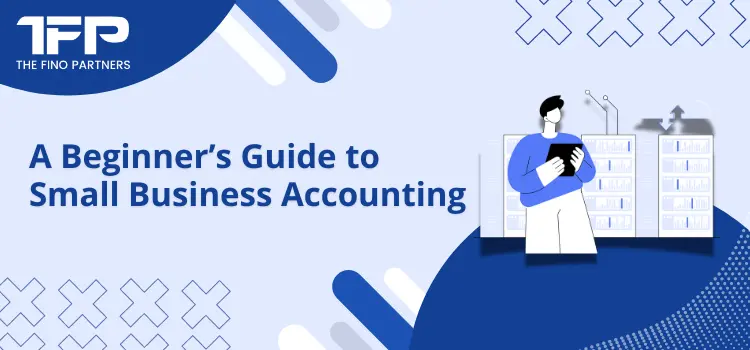For every small business, finances are likely the most essential thing to handle. Accounting could be tough in the beginning, however with the proper understanding and approach, it becomes manageable. So, whether you handle your own books of accounts or you explore Small business Accounting Services, getting your finances in order from the beginning is essential to your business's success.
What is Small Business Accounting?
Small business accounting is keeping track of and managing your company's financial transactions. They contain earnings, expenditures, assets and liabilities. Correctly maintained records are vital for tax preparation, financial reporting and analyzing your company's economic health.
Bigger businesses employ dedicated accounting teams, but small business owners often handle the work themselves. If the process seems overwhelming, Small business Accounting Services may be an asset in keeping your books in order without sacrificing time from other essential areas of your Business.
Why is Small Business Accounting Important?
Accounting is more than maintaining tabs on product sales and expenditures. It helps you understand your business financial health. Good accounting can certainly help you :
- Track your cash flow: How much money is coming in and going out helps you make better financial choices.
- Get prepared for taxes: Correct accounting records allow it to be simpler to file taxes and to prevent audits or errors.
- Determine growth opportunities: Accounting data show trends and patterns which could help businesses make future decisions.
- Be compliant: Appropriate bookkeeping helps you meet local regulations and business laws.
- Develop a solid business foundation: With clean records, it is possible to apply for loans, entice investors and plan for the future.
In case tracking all these details gets too time consuming or too complex, outsource it to Small business Accounting Services and free up time to grow your business.
The Key Components of Small Business Accounting
Here are the main components of small business accounting in the USA:
1. Picking a business structure
Your first step in small business accounting is deciding on your business structure.
- Sole Proprietorship: This is asimple and affordable choice, however there is no legal distinction between both you and your business.
- Partnerships: Shared responsibility among two or more individuals.
- Limited Liability Company: Provides liability protection with flexibility in taxation.
- Corporation: A legal entity separate from the owners offering protection but with more complicated tax structures.
Each structure has advantages and disadvantages, so speak with an expert in Small Business Accounting Services about your choices.
2. Setting Up a Business Bank Account
As a sole proprietorship, you have to split up your personal and Business finances. Opening a business bank account tracks business income and expenses, making accounting and filing taxes easier.
3. Selecting an Accounting Method
Small companies generally choose between two Accounting methods:
- Cash Accounting: Recognizes income when received and expenses when paid. It's simple to use and a typical option for small companies.
- Accrual Accounting: Recognizes income when earned and expenses when they're incurred, no matter when the money changes hands. This more complicated technique offers a much better idea of your business's financial health.
Small business Accounting Services will assist you to determine the proper method for your Business.
4. Setting Up Your Chart of Accounts
A Chart of accounts lists all the accounts your business uses to track its financial transactions. They are classified into:
- Assets: Things your business holds (cash, inventory, equipment).
- Liabilities: Debts or obligations (loans, accounts payable).
- Income/Revenue: Money made from services or sales.
- Expenses: Costs of your business (rent, utilities).
- Equity: The owner's share in the business.
Qualified Small business accounting Services can set this up for you with default categories that suit your business type.
5. Recording Financial transactions
The core of accounting is recording transactions. This includes tracking every sale, cost, and payment for your business. You can do this by hand, using Accounting software or using Small Business accounting Services.
6. Managing Invoices and Expenses
Invoice management keeps your customers paying on time and your cash flow healthy. In a similar fashion, tracking expenses ensures you receive any deductions when tax season comes around.
There are multiple invoicing programs and applications to automate the process. But in case you are unable to deal with it consistently, Small Business Accounting Services can assist with invoices and expense tracking.
7. Reconciling your Bank Account
Bank reconciliation compares your business bank account statements with your internal financial documents. Doing this regularly will help avoid errors, catch possible fraud and also ensure your financial statements are correct.
Using Small Business Accounting Services can make bank reconciliation easier with professionals automating the process and handling discrepancies.
Final Thoughts
The Fino Partners, Small business accounting is essential for monitoring your business's financial well being, submitting taxes and making choices. It might seem tough in the beginning, however follow the basic steps above to get started. And when managing your Accounting gets way too tough, try Small Business accounting Services.




























